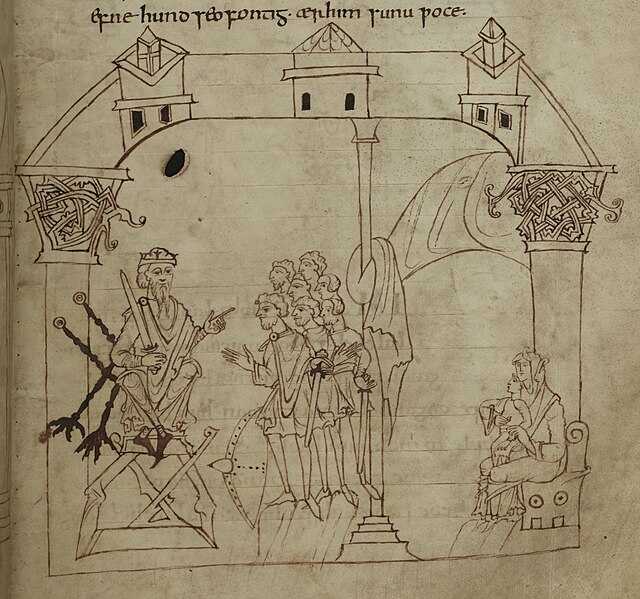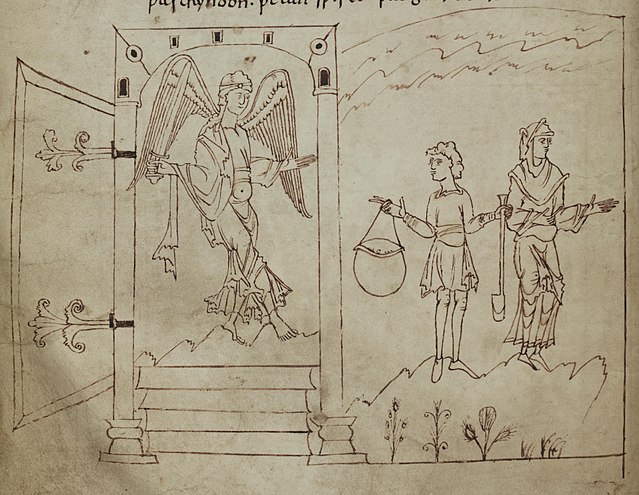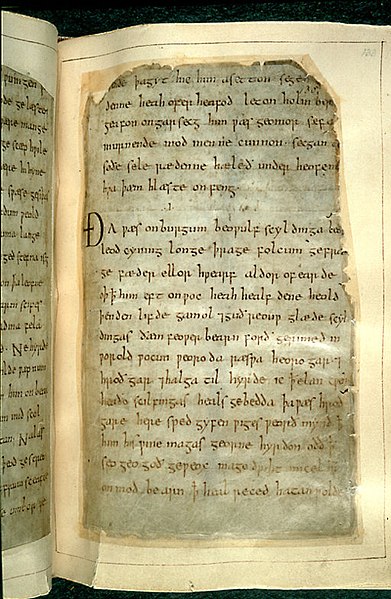The Junius manuscript is one of the four major codices of Old English literature. Written in the 10th century, it contains poetry dealing with Biblical subjects in Old English, the vernacular language of Anglo-Saxon England. Modern editors have determined that the manuscript is made of four poems, to which they have given the titles Genesis, Exodus, Daniel, and Christ and Satan. The identity of their author is unknown. For a long time, scholars believed them to be the work of Cædmon, accordingly calling the book the Cædmon manuscript. This theory has been discarded due to the significant differences between the poems.
An illustration of patriarch Kenan, from the Junius manuscript.
An illustration of a ship from the Cædmon manuscript.
In this illustration from page 46 of the Cædmon manuscript, an angel is shown expelling Adam and Eve from the gates of paradise.
Old English literature refers to poetry and prose written in Old English in early medieval England, from the 7th century to the decades after the Norman Conquest of 1066, a period often termed Anglo-Saxon England. The 7th-century work Cædmon's Hymn is often considered as the oldest surviving poem in English, as it appears in an 8th-century copy of Bede's text, the Ecclesiastical History of the English People. Poetry written in the mid 12th century represents some of the latest post-Norman examples of Old English. Adherence to the grammatical rules of Old English is largely inconsistent in 12th-century work, and by the 13th century the grammar and syntax of Old English had almost completely deteriorated, giving way to the much larger Middle English corpus of literature.
The Peterborough Chronicle, in a hand of about 1150, is one of the major sources of the Anglo-Saxon Chronicle; the initial page
In this illustration from page 46 of the Cædmon (or Junius) manuscript, an angel is shown guarding the gates of paradise.
Remounted page from Beowulf, British Library Cotton Vitellius A.XV
First page of Beowulf, contained in the damaged Nowell Codex






